Axel Wisiorek
A Federated Approach to Few-Shot Hate Speech Detection for Marginalized Communities
Dec 06, 2024
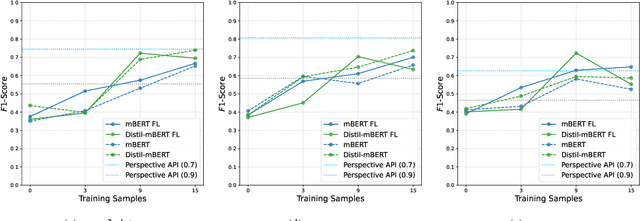
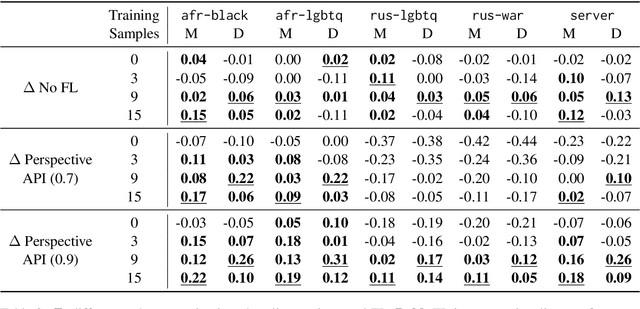
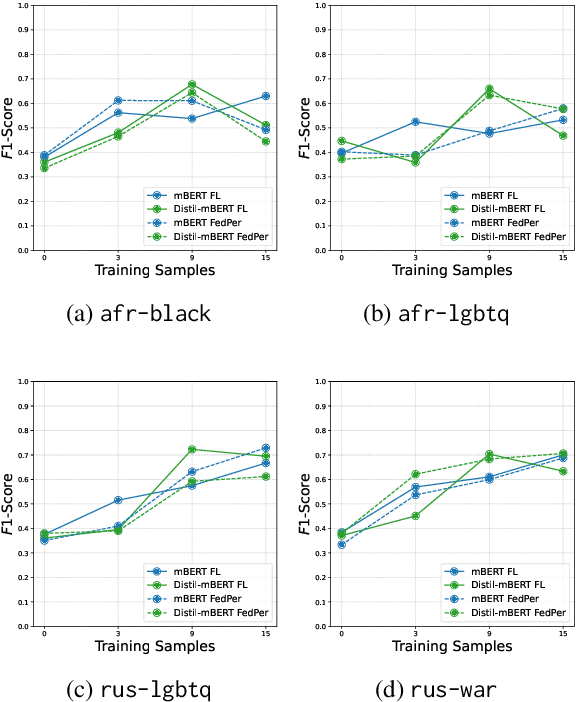
Abstract:Hate speech online remains an understudied issue for marginalized communities, and has seen rising relevance, especially in the Global South, which includes developing societies with increasing internet penetration. In this paper, we aim to provide marginalized communities living in societies where the dominant language is low-resource with a privacy-preserving tool to protect themselves from hate speech on the internet by filtering offensive content in their native languages. Our contribution in this paper is twofold: 1) we release REACT (REsponsive hate speech datasets Across ConTexts), a collection of high-quality, culture-specific hate speech detection datasets comprising seven distinct target groups in eight low-resource languages, curated by experienced data collectors; 2) we propose a solution to few-shot hate speech detection utilizing federated learning (FL), a privacy-preserving and collaborative learning approach, to continuously improve a central model that exhibits robustness when tackling different target groups and languages. By keeping the training local to the users' devices, we ensure the privacy of the users' data while benefitting from the efficiency of federated learning. Furthermore, we personalize client models to target-specific training data and evaluate their performance. Our results indicate the effectiveness of FL across different target groups, whereas the benefits of personalization on few-shot learning are not clear.
Listening to Affected Communities to Define Extreme Speech: Dataset and Experiments
Mar 22, 2022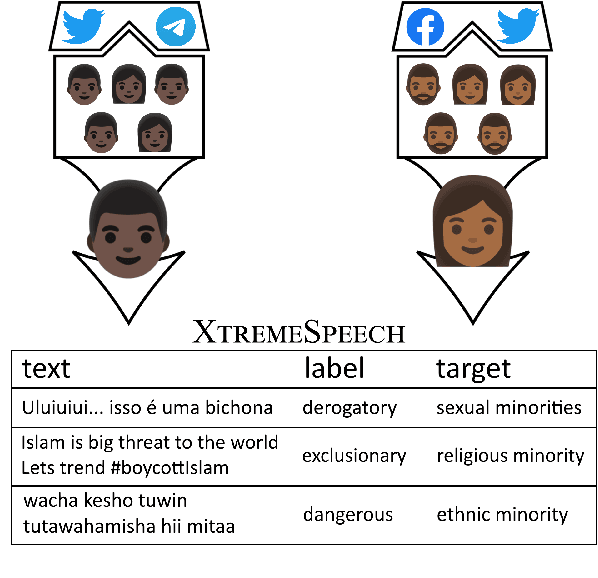


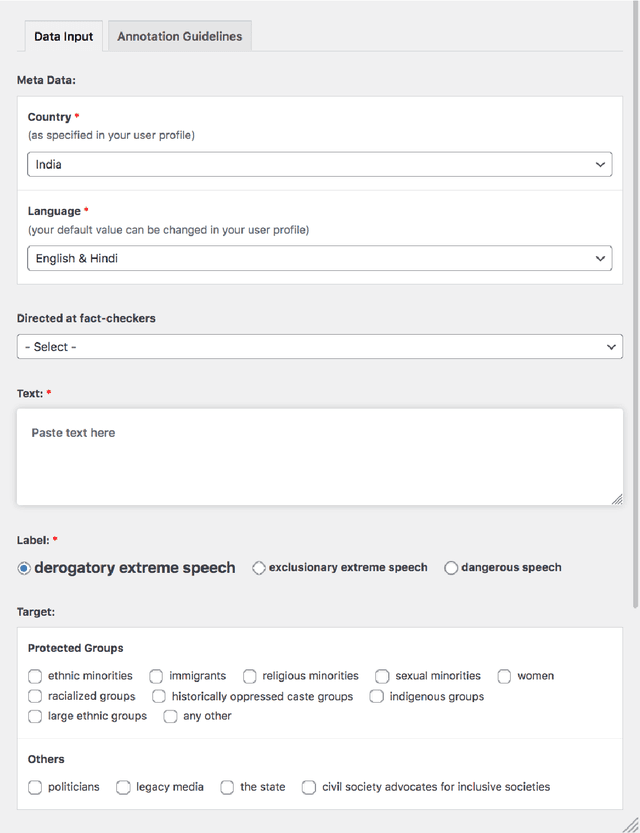
Abstract:Building on current work on multilingual hate speech (e.g., Ousidhoum et al. (2019)) and hate speech reduction (e.g., Sap et al. (2020)), we present XTREMESPEECH, a new hate speech dataset containing 20,297 social media passages from Brazil, Germany, India and Kenya. The key novelty is that we directly involve the affected communities in collecting and annotating the data - as opposed to giving companies and governments control over defining and combatting hate speech. This inclusive approach results in datasets more representative of actually occurring online speech and is likely to facilitate the removal of the social media content that marginalized communities view as causing the most harm. Based on XTREMESPEECH, we establish novel tasks with accompanying baselines, provide evidence that cross-country training is generally not feasible due to cultural differences between countries and perform an interpretability analysis of BERT's predictions.
 Add to Chrome
Add to Chrome Add to Firefox
Add to Firefox Add to Edge
Add to Edge